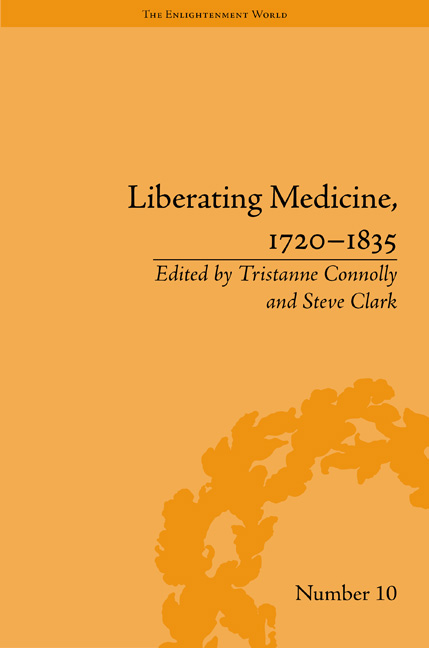Book contents
- Frontmatter
- CONTENTS
- Acknowledgements
- Contributors
- List of Figures
- Introduction
- I Spiritual Sickness and Hypochondria
- II Health and Emancipation
- III Madness
- 8 ‘In sickness, despair, and in agony’: Imagining the King's Illness, 1788–1789
- 9 Disembodied Souls and Exemplary Narratives: James Hogg and Popular Medical Literature
- 10 Idiotic Associations: Wordsworth and Nineteenth-Century Discourses on Idiocy
- IV Anatomized and Aestheticized Bodies
- V Birth
- Notes
- Works Cited
- Index
8 - ‘In sickness, despair, and in agony’: Imagining the King's Illness, 1788–1789
from III - Madness
- Frontmatter
- CONTENTS
- Acknowledgements
- Contributors
- List of Figures
- Introduction
- I Spiritual Sickness and Hypochondria
- II Health and Emancipation
- III Madness
- 8 ‘In sickness, despair, and in agony’: Imagining the King's Illness, 1788–1789
- 9 Disembodied Souls and Exemplary Narratives: James Hogg and Popular Medical Literature
- 10 Idiotic Associations: Wordsworth and Nineteenth-Century Discourses on Idiocy
- IV Anatomized and Aestheticized Bodies
- V Birth
- Notes
- Works Cited
- Index
Summary
On 17 October 1788 George III summoned his chief doctor, Sir George Baker, to complain of sleeplessness, stomach pains and cramps. Baker thought the King was developing gout. Within days other symptoms began appearing: George III talked constantly, but often incoherently, and demonstrated extreme restlessness. ‘Delirium’ was whispered in court circles. In general his condition progressively worsened, and in early November he was rumoured to be dying, perhaps even dead. By mid-November the illness no longer seemed life-threatening, but the doctors feared what the Prince of Wales referred to as ‘durable insanity’, and could not agree on what to do. At the end of the month application was made to the Rev. Francis Willis, who specialized in mental illness, and kept a private asylum in Lincolnshire. During December Willis and his son, John, assumed control of the King's treatment, though they still had to consult the other doctors. Their methods were harsh, involving extensive use of a strait-waistcoat and other restraining devices. Despite, or because of, such treatments, from around mid-January 1789 the King began to recover, and by the second half of February was functioning more or less as normal. In March his recovery prompted widespread public celebrations. George III was not cured, however; shorter attacks of the illness followed in 1801 and 1804, and when the King fell ill again in 1810 there was to be no recovery. Senility combined with the old – still undiagnosed – illness, and by 1812 he was living in a strange, fantasy world of his own. He hardly ever left that world, and then only briefly and uncertainly, in his remaining eight years of life.
George III's illness has been described as ‘probably the most famous and most momentous in English history’. It is ‘famous and … momentous’ not just because of the celebrity of the invalid, or the duration of his afflictions, but because the illness itself was so mysterious, transforming the King's character in disturbing ways, and because so much was at stake politically, especially in 1788–9. No contemporary doctor could explain the King's malady.
- Type
- Chapter
- Information
- Liberating Medicine, 1720–1835 , pp. 109 - 126Publisher: Pickering & ChattoFirst published in: 2014



